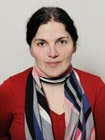ERC-beurzen helpen drie RUG-wetenschappers naar de top
Drie onderzoekers aan de Rijksuniversiteit Groningen hebben een ERC Consolidator Grant toegekend gekregen. Het gaat om Catarina Dutilh Novaes, Ming Cao en Syuzanna R. Harutyunyan. De European Research Council (ERC) kent deze persoonsgebonden subsidies van 2 miljoen euro toe aan excellente wetenschappers. Hiermee stimuleert de ERC baanbrekend onderzoek in Europa.
Ming Cao

Professor Cao van het Engineering and Technology Institute Groningen (ENTEG, Faculty of Science and Engineering) is hoogleraar Networks and Robotics. Cao is opgeleid als elektrotechnisch ingenieur en is expert in het bouwen van wiskundige modellen voor complexe systemen. Hij verricht baanbrekend werk op het gebied van controlesystemen die groepen autonome robots laten samenwerken. Cao is opgegroeid in China en studeerde in de Verenigde Staten.
Om autonome auto’s en robots veilig en effectief te laten functioneren moeten zij rekening houden met elkaars handelen. Cao werkt aan deze ontwikkeling samen met collega’s uit de sociologie, wiskunde en biologie. De algoritmen die hij zo ontwikkelt voor de robots zijn deels geïnspireerd op de bewegingen van dieren, vooral vissen en vogels, die ook in formatie handelen.
-
Contact: Ming Cao
Syuzanna R. Harutyunyan

Syuzanna Harutyunyan (Stratingh Institute of Chemistry, Faculty of Science and Engineering) is op dit moment adjunct hoogleraar op het gebied van Synthetic Organic Chemistry. Zij volgde haar opleiding in de chemie in Armenië en Rusland. Voor ze naar Groningen kwam voor een tenure-track positie, deed ze onderzoek in Polen en België. Syuzanna kwam in 2003 bij de onderzoeksgroep van prof. dr. Feringa als postdoctoraal ‘Research Fellow’. Professor Harutyunyan richt zich in haar werk op het ontwikkelen van nieuwe/efficiëntere chemische processen die van nut zijn in de farmaceutische, fijn-chemische of agrochemische industrie. Met de nu toegekende subsidie gaat ze recente baanbrekende ontdekkingen in het combineren van Lewiszuren en koperkatalyse, toepassen in het de-aromatiseren van aromatische moleculen. Dit biedt veelbelovende toepassingen in medicinale chemie en de zoektocht naar nieuwe medicijnen.
-
Nieuwsbericht over haar Science publicatie: ‘Coole’ combinatie verbindt koolstofatomen
-
Contact: Syuzanna Harutyunyan
Catarina Dutilh Novaes

Prof.dr. Dutilh Novaes (Faculteit Wijsbegeerte) heeft een aanstelling als Adjunct Hoogleraar en Rosalind Franklin Fellow en is daarnaast als extern lid verbonden aan het Munich Center for Mathematical Philosophy (LMU). Catarina Dutilh Novaes doceert verschillende vakken aan de faculteit. De expertise van Dutilh Novaes is breed, en betreft onder andere de filosofie en geschiedenis van de logica en wiskunde. Van 2011 tot 2016 leidde ze het NWO-VIDI project 'The Roots of Deduction'; een onderzoek naar de oorsprong en de praktijken van deductief redeneren, in het bijzonder in de wiskunde. Haar onderzoek wordt gekenmerkt door samenwerking met cognitiewetenschappers en psychologen, en dit gaat ze ook doen in haar ERC project 'The Social Epistemology of Argumentation'.
Meer over ERC
ERC ondersteunt talentvolle jonge onderzoekers bij het opzetten van een onderzoeksteam en het starten van een onafhankelijk onderzoeksproject. De Consolidator Grants staan open voor mid-career academici van alle nationaliteiten. In totaal ontvangen 329 onderzoekers uit heel Europa nu een Consolidator Grant. De ERC heeft daarvoor 2.538 onderzoeksvoorstellen beoordeeld. Van de 25 toekenningen op Nederlandse bodem zijn er 3 voor rekening van de RUG.
De subsidie, onderdeel van het EU Horizon 2020 programma, is in totaal €630 miljoen waard. Een ERC-beurs stelt de onderzoekers in staat gedurfd, baanbrekend onderzoek op te starten en binnen hun vakgebied nieuwe wegen in te slaan.
Meer nieuws
-
17 februari 2026
De lange zoektocht naar nieuwe fysica
-
10 februari 2026
Waarom slechts een klein aantal planeten geschikt is voor leven
